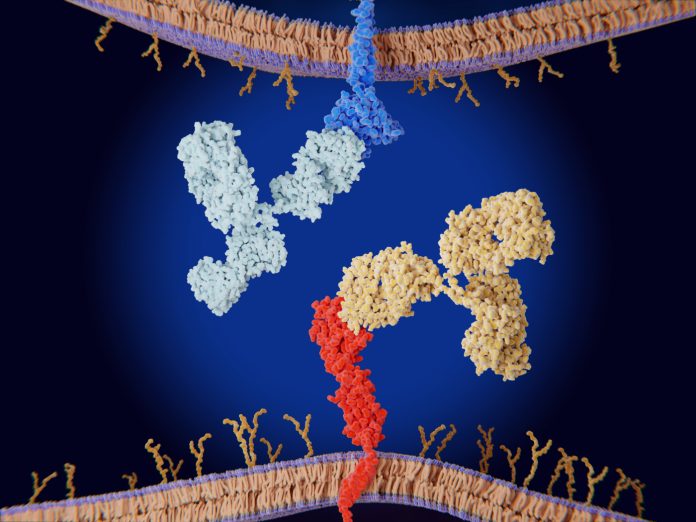
Cancer Genomics company Personalis announced Tuesday that it will work with both Duke University researchers and proteomics-focused Olink Holding AB to identify and develop composite biomarkers that can help guide clinical decision making for the use of immunotherapy in gastroesophageal cancer.
Specifically, the collaboration will seek to characterize important tumor and immunological responses to the approved drug pembrolizumab, an immunotherapy that targets PDL1/PD1. The intent is to uncover the potential mechanisms within the tumor or tumor microenvironment that indicate efficacy or resistance to the drug in gastroesophageal cancer.
The team will develop data on the genomic, proteomic, and transcriptomic levels to provide a multi-omic view of how tumors respond to treatment. Using these data, the team will then develop the composite biomarkers—those that integrate multiple biological entities into a single readout—to help clinicians predict tumor response to pembrolizumab and adjust treatment based on this information.
“Biomarkers that predict and characterize tumor responses to anti-PDL1/PD1 therapy remain poorly understood, largely due to the complex and multifaceted interactions between the tumor and immune system. Through comprehensive plasma and tumor immune profiling, we aim to clarify the interconnected roles of tumor genomics and proteomics, as well as the development of composite biomarkers to clinically predict and follow immunotherapy response,” said Andrew Nixon, PhD, director of the Phase I Biomarker Laboratory, Duke University School of Medicine.
The research will use the ImmunoID NeXT, tumor-informed liquid biopsy test from Personalis to develop genomic and transcriptomic characterizations of patient tumor to help stratify responders and non-responders. Olink’s Explore panels will be applied to analyze plasma samples of patients with metastatic gastroesophageal cancer who are being treated with a combination of anti-PD1 and anti-PD1 and chemotherapy.
“This study has the potential to identify the mechanisms of immune resistance in metastatic gastroesophageal cancer, which may enable strategies to optimize response rates to existing immunotherapies and develop novel therapeutics that overcome resistance,” said Marijana Rucevic, PhD, Senior Scientific Director, Olink Proteomics.
In addition to studying the mechanisms of response to pembrolizumab, the Duke researchers will also employ Personalis’ NeXT Personal liquid biopsy diagnostic to analyze circulating tumor DNA (ctDNA) to monitor patient response—molecular residual disease, or MRD—over the course of their therapy.
According to Richard Chen, MD, CMO and Senior VP of R&D at Personalis, the research collaboration with Olink and Duke will help further refine the practice and use of MRD information in the clinic.
“We believe the clinical management of cancer can substantially improve with early determination of patient response and by accurately informing changes to treatment regimens. Such determinations offer the potential to avoid unnecessary toxicities and increase survival,” Chen noted in a press release.











